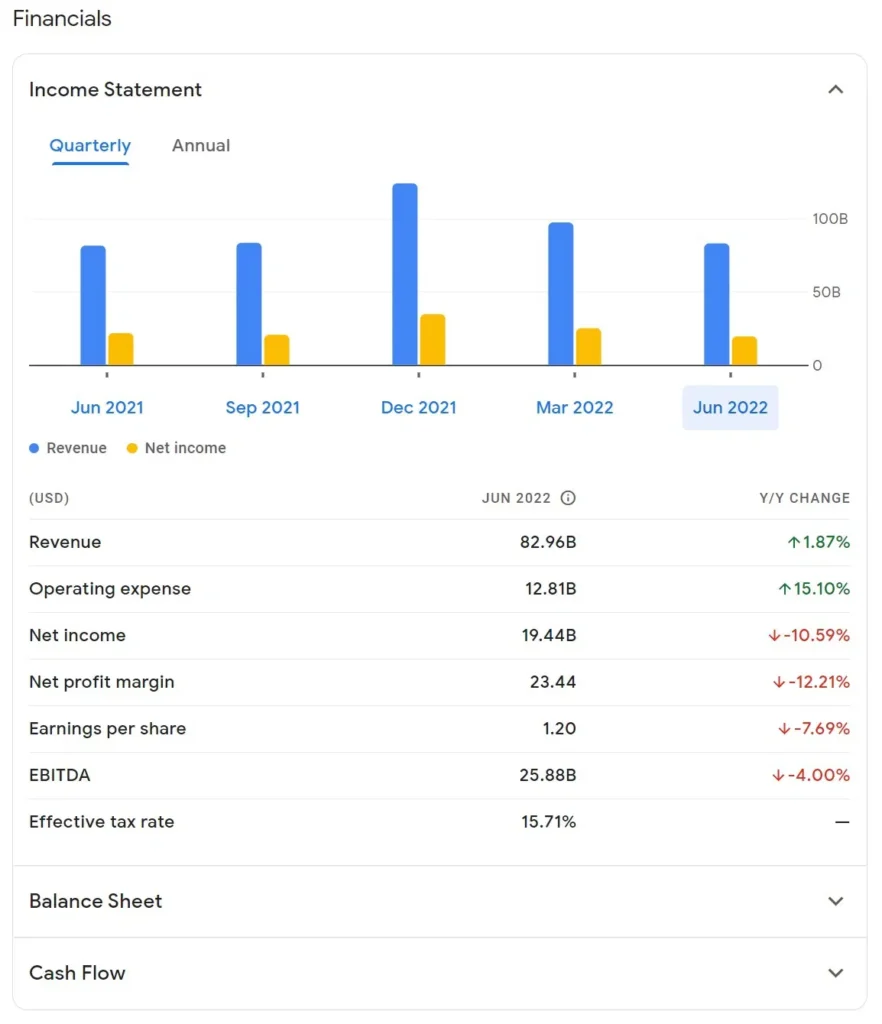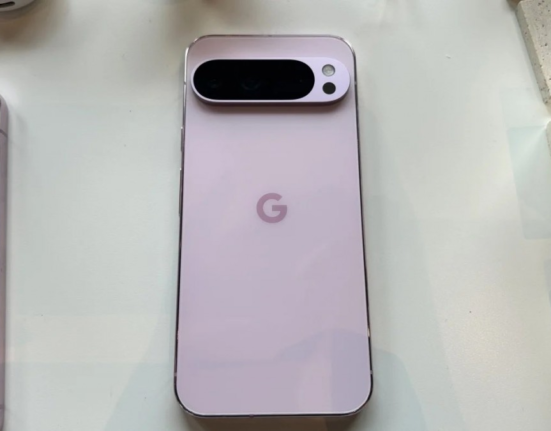Search giant Google faces a dilemma. How can it leverage the power of generative artificial intelligence (AI) to enhance its core search product without disrupting the advertising model that fuels its success?
It is exploring the possibility of offering “premium” search features powered by AI, according to the Financial Times report on April 4 which cites people familiar with the matter.
The company is considering integrating these AI functionalities into its existing premium subscription services, like Google One, which already offers access to advanced features like the Gemini AI assistant.
For decades, Google’s free search engine, funded by targeted advertising, has been the dominant force in online information retrieval.
This model, generating over half of Google’s total sales in 2023, faces a new challenge: the rise of large language models (LLMs) like OpenAI‘s ChatGPT. These AI-powered chatbots can deliver comprehensive answers to user queries, potentially bypassing the traditional list of links and ads that Google serves.

Google is reportedly exploring the possibility of charging users for access to “premium” internet search results driven by artificial intelligence (AI), a recent report reveals.
According to sources, the tech behemoth is evaluating various strategies for leveraging AI technology, including integrating advanced search functionalities into its premium subscription offerings.
Under the proposed plans, Google’s primary search engine would remain freely accessible, with additional content reserved for paying subscribers, as disclosed by insiders to the Financial Times.
Even for subscribers, advertisements would continue to accompany search results, the report notes, highlighting the vast user base of over a billion people who utilise the search tool each month.
While Google already monetises certain features such as expanded storage and its “AI Premium” service, granting access to the new Gemini AI assistant in platforms like Gmail and Docs, this potential initiative would mark the first instance of placing core products behind a paywall.
The Financial Times obtained insights into these deliberations from three sources within Google, indicating ongoing efforts by engineers to develop enhanced AI tools. However, company executives are yet to finalize decisions regarding the introduction and timing of this feature.
Responding to queries, a spokesperson for Google informed Sky News, “We’re not working on or considering an ad-free search experience.” They reiterated Google’s commitment to continually enhancing subscription offerings with new premium capabilities and services.
Amidst fierce competition among tech firms in harnessing AI, Google’s strategies have drawn scrutiny, with some observers suggesting the company is grappling to keep pace with rivals like ChatGPT.
Recent controversies surrounding Google’s AI applications include reports of restricting its AI chatbot Gemini from addressing election-related queries in certain regions due to concerns about disseminating misleading information. Additionally, in February, Google ceased the tool’s image generation function following complaints regarding “inaccurate” historical depictions of individuals.
Balancing benefits and risks
This potential move towards a layered search system presents both advantages and drawbacks.
On the one hand, paying users could potentially enjoy more insightful search results, enriched with AI-powered summaries and analyses. This could lead to a more efficient and satisfying search experience.
However, concerns linger about the broader impact on the internet landscape. If AI-powered search delivers complete answers, users might be less inclined to click through to advertiser websites, potentially impacting Google’s ad revenue stream.
Moreover, many online publishers depend on traffic generated by Google search. If Google’s AI directly extracts information from webpages and presents it to users, it could result in a decrease in website visits for publishers, affecting their revenue streams.
Google’s financial might
Financially, Google parent company Alphabet, remains a powerhouse. With a valuation exceeding $1.6 trillion as of 2023, Alphabet boasts a diversified revenue stream stemming from its various ventures beyond just search.
In 2023 alone, the conglomerate reported a staggering $305.6 billion in revenue, underscoring its financial strength and commitment to innovation.
Google’s financial strength empowers it to invest in AI development and explore new search experiences, even if they have the potential to disrupt its traditional advertising model.

The Potential Shift
Google, known for its free search engine supported by ads, is reportedly considering introducing a paid tier for access to advanced search features powered by artificial intelligence. This proposed move comes in response to the escalating costs associated with deploying AI technology for search purposes. Engineers are said to be working on backend technology to support such a service, although a final decision has not yet been made.
Experimentation and uncertainty
It has yet to decide on the exact implementation of its AI-powered search offering.
While the prospect of a completely ad-free premium search seems improbable, Google may introduce tiered subscription plans with different levels of AI integration.
Moreover, certain aspects of the experimental “Search Generative Experience” could potentially be incorporated into the free search engine over time.
The upcoming months will play a crucial role for Google as it navigates through this unfamiliar territory.
The company needs to figure out how to embrace AI innovation while also protecting its core advertising model and promoting an advanced online ecosystem for publishers and users.
The Rising Costs of AI Technology
The expense of running queries through advanced neural networks like Google’s AI model Gemini, is substantial compared to traditional keyword searches. With AI technology becoming increasingly integral to search functionality, covering these costs has become a pressing concern for Google. The same is the case with other AI search engines and tech companies.
User Experience and Feedback
Google’s exploration of premium AI search options coincides with ongoing trials of AI-generated search overviews in the UK. These trials aim to gauge user response and refine the technology to prioritize information quality and accuracy. The early feedback on AI-enhanced search features in these trials has been positive. However, concerns remain about the impact on user interactions with ads and traditional search results.

Industry Trends and Competition
The potential introduction of paid AI search features aligns with broader industry trends towards subscription-based models for AI-powered services. Competitors in the AI search space, such as Perplexity and Arc, already offer subscription plans with access to advanced AI models and features. These indicate a shifting landscape in search technology.
Google Considers Charging for AI-Powered Search
Google is reportedly exploring the possibility of charging users for its AI-powered search features. This potential shift marks a significant departure from the company’s traditional free search model and could reshape the online search landscape.
While the specifics of the proposed changes are still under development, it’s likely that Google would introduce a premium tier offering enhanced AI capabilities, such as more comprehensive search results, advanced language processing, and specialized AI tools. The core search experience would likely remain free, supported by advertising revenue.
Potential implications of this move include:
- Increased revenue: Charging for premium AI features could generate substantial additional revenue for Google.
- User impact: The introduction of a paid tier could potentially divide users based on their willingness to pay for enhanced search capabilities.
- Competitive landscape: Other search engines might follow suit, leading to a more tiered search ecosystem.
- Privacy concerns: The collection of more user data for personalized AI results could raise privacy concerns.
This development highlights the complexities of balancing innovation with revenue generation in the tech industry. As AI continues to evolve, we can expect to see further experimentation with business models in the search sector.
Google’s Potential Paid AI Search: A Deeper Dive
Google’s exploration of a paid tier for AI-powered search is a pivotal moment for the search giant and the broader tech industry. This move could reshape the digital landscape in several ways:
Impact on Users
- Potential paywall: A tiered search system could create a digital divide, with those unable or unwilling to pay potentially receiving less advanced search results.
- Data privacy concerns: If Google collects more data to refine AI search results, users might have concerns about their privacy.
- Altered search behavior: Users might adapt their search queries to optimize free search results, potentially affecting the overall quality of search results.
Implications for the Industry
- Competitive landscape: Other search engines might follow suit, leading to a more complex and competitive search ecosystem.
- Business models: The success of a paid AI search tier could encourage other tech companies to explore similar revenue models.
- AI development: Increased revenue could fuel further investment in AI research and development.
Potential Challenges
- User acceptance: Gaining user acceptance for a paid search model will be crucial.
- Balancing free and paid tiers: Ensuring a fair and equitable experience for both free and paid users will be challenging.
- Maintaining search quality: Google must ensure that the core search experience remains high-quality, even as it introduces paid features.
Ultimately, Google’s decision to charge for AI-powered search will depend on a careful evaluation of the potential benefits and risks. The company will need to balance the need for revenue generation with the desire to maintain user satisfaction and trust.
Potential Business Models
If Google proceeds with a paid tier, several business models could emerge:
- Subscription-based model: Users pay a monthly or annual fee for access to premium AI search features.
- Tiered pricing: Different subscription levels offering varying degrees of AI capabilities.
- Pay-per-use model: Users are charged based on the number of AI queries or the complexity of the search.
Ethical Considerations
Google’s potential move could intensify competition among search engines. Rivals like Bing and DuckDuckGo might explore similar monetization strategies to attract users away from Google. This could lead to a more diverse and innovative search landscape.
Ethical Considerations
The introduction of a paid tier raises ethical questions about digital equity. A paywall could create a digital divide, limiting access to advanced search capabilities for those unable or unwilling to pay. Google will need to carefully consider the potential impact on users and develop strategies to mitigate these concerns.
The Road Ahead
Google’s decision to charge for AI-powered search is still under consideration, and the final shape of any potential paid tier remains unclear. However, this development highlights the evolving nature of the search industry and the increasing importance of AI in our digital lives.
Conclusion
Google’s potential move to charge for AI-powered search marks a significant shift in the search engine landscape. While it promises additional revenue streams for the tech giant, it also raises questions about digital equity and the future of free internet services. The decision to introduce a paid tier will undoubtedly impact users, competitors, and the broader tech industry. As AI continues to evolve, the monetization of search capabilities will be a critical factor shaping the digital experience.
Ultimately, the success of a paid AI search model will depend on Google’s ability to balance innovation, user satisfaction, and revenue generation.
Disclaimer ||
The Information provided on this website article does not constitute investment advice ,financial advice,trading advice,or any other sort of advice and you should not treat any of the website’s content as such.
Always do your own research! DYOR NFA
Coin Data Cap does not recommend that any cryptocurrency should be bought, sold or held by you, Do Conduct your own due diligence and consult your financial adviser before making any investment decisions!



